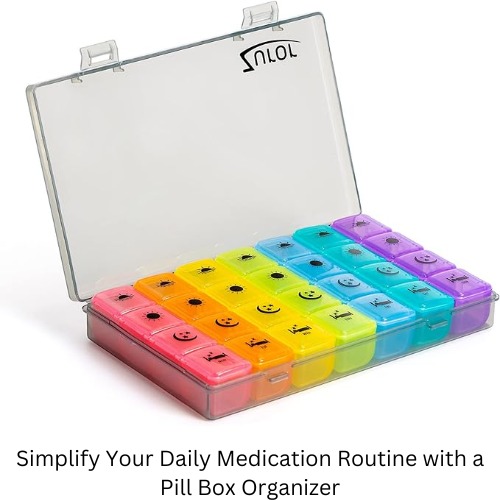In the competitive world of business, crafting effective Enterprise Sales Strategies is essential for driving revenue and sustaining growth. Companies must continually refine their sales approaches to navigate the complexities of enterprise-level deals, which often involve multiple stakeholders and lengthy sales cycles. To achieve sales success, organizations must adopt key techniques that enhance their sales processes and build strong relationships with clients.
1. Understand Your Customer
The Foundation of Successful Sales
A deep understanding of your customers is crucial in enterprise sales. The more you know about your clients, the better you can tailor your offerings to meet their needs.
Techniques for Customer Understanding:
- Conduct In-Depth Research: Investigate your customers’ industries, business challenges, and pain points. This knowledge will allow you to position your products or services effectively.
- Develop Customer Personas: Create detailed profiles of your ideal customers, including their roles, goals, and purchasing behaviors. This will help your sales team understand whom they are targeting.
- Engage in Active Listening: During sales conversations, practice active listening. This means fully focusing on what the customer is saying to understand their concerns and needs better.
2. Build Strong Relationships
Relationship-Centric Selling
In enterprise sales, building long-lasting relationships is essential. Customers prefer to work with vendors they trust and feel comfortable with.
Techniques for Relationship Building:
- Personalize Your Approach: Tailor your communications and offerings based on the specific needs of each client. Personalization fosters a sense of partnership.
- Be Responsive: Timely responses to inquiries and concerns show that you value your customer’s time and business. Make it a priority to stay engaged and follow up regularly.
- Establish Thought Leadership: Share insights, industry trends, and valuable content with your clients. Positioning yourself as a thought leader builds credibility and trust.
3. Leverage Technology and Tools
Enhancing Efficiency and Effectiveness
Modern sales techniques rely heavily on technology. Utilizing the right tools can significantly streamline your sales process and improve results.
Essential Tools for Enterprise Sales:
- Customer Relationship Management (CRM) Systems: Invest in a robust CRM to manage customer interactions, track sales activities, and analyze performance data.
- Sales Automation Tools: Implement automation tools to streamline repetitive tasks, such as follow-up emails and lead tracking, allowing your sales team to focus on selling.
- Analytics Platforms: Use data analytics to assess sales performance and identify trends. This information can help in making informed decisions and optimizing strategies.
4. Focus on Solution Selling
Understanding and Addressing Needs
Solution selling involves identifying a customer’s problems and offering tailored solutions rather than simply pushing a product.
Techniques for Solution Selling:
- Ask Open-Ended Questions: Encourage dialogue by asking open-ended questions that prompt customers to discuss their challenges in depth.
- Provide Value: Position your offerings as solutions that address specific pain points. Demonstrate how your product can solve their problems effectively.
- Use Case Studies: Share case studies and success stories that highlight how your solution has helped similar organizations overcome challenges.
5. Train and Empower Your Sales Team
Investing in Human Capital
A well-trained sales team is vital for implementing effective Enterprise Sales Strategies. Continuous training ensures that your sales force remains knowledgeable and skilled.
Strategies for Team Training:
- Regular Workshops: Organize workshops and training sessions focusing on sales techniques, product knowledge, and industry trends. Continuous learning keeps your team sharp and informed.
- Mentorship Programs: Pair experienced sales professionals with newer team members. Mentorship fosters knowledge sharing and personal development.
- Set Clear Expectations: Define performance metrics and expectations for your sales team. This clarity helps salespeople understand their goals and motivates them to succeed.
6. Implement a Strategic Sales Process
Structuring Your Approach
Having a well-defined sales process is crucial for consistency and effectiveness. A structured approach ensures that all team members follow best practices.
Components of a Strategic Sales Process:
- Lead Generation: Utilize various channels such as social media, content marketing, and networking events to attract potential customers.
- Qualification: Assess leads to ensure they fit your ideal customer profile. Focus your efforts on high-potential opportunities.
- Needs Analysis: Engage in discussions with prospects to understand their unique needs and tailor your sales approach accordingly.
- Proposal Development: Craft personalized proposals that outline how your solution addresses their specific challenges.
- Closing Techniques: Implement effective closing techniques to secure commitments and overcome objections.
7. Monitor and Evaluate Performance
Continuous Improvement
Regularly monitoring and evaluating sales performance is essential for refining your techniques and strategies.
Techniques for Performance Evaluation:
- Key Performance Indicators (KPIs): Establish KPIs to track sales metrics, such as conversion rates, revenue generated, and sales cycle length. Monitor these regularly to assess performance.
- Feedback Loops: Create feedback mechanisms for sales representatives to share insights about customer interactions and challenges faced during the sales process.
- Sales Meetings: Conduct regular sales meetings to review performance, share best practices, and discuss strategies for improvement.
8. Foster a Collaborative Culture
Teamwork for Success
Collaboration within the sales team and across departments enhances enterprise sales success. A collaborative culture encourages sharing ideas and resources.
Ways to Foster Collaboration:
- Cross-Functional Teams: Encourage collaboration between sales, marketing, and product teams. Cross-functional teams can provide valuable insights and create cohesive strategies.
- Open Communication: Create channels for open communication, allowing team members to share successes, challenges, and strategies.
- Team Celebrations: Celebrate team wins and achievements to foster a sense of camaraderie and motivation within the sales team.
Conclusion
Boosting your enterprise sales success requires a multi-faceted approach that combines understanding your customers, building strong relationships, leveraging technology, and focusing on solution selling. Investing in your sales team through training and empowerment is crucial for executing effective Enterprise Sales Strategies.
By implementing a strategic sales process, monitoring performance, and fostering collaboration, organizations can enhance their sales effectiveness and drive sustainable growth. The combination of these techniques will not only improve sales outcomes but also establish a strong foundation for future success in enterprise sales.















